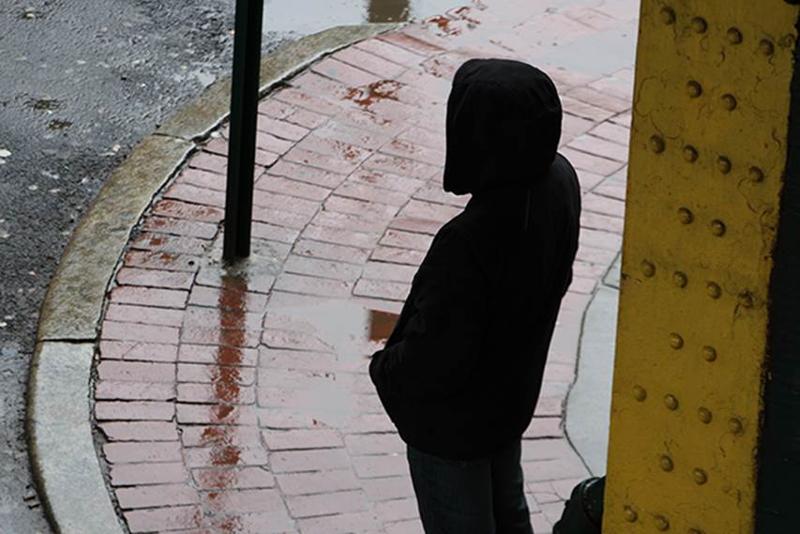EN-102

Copyright Jodie Childers
Course Description and Objectives from the catalog:
EN-102; English Composition II: Introduction to Literature
(3 class hours1recitation hour 3 credits. Prerequisite: EN-101. )
Continued practice in writing combined with an introduction to literature: fiction, drama, and poetry. During the recitation hour, students review basic elements of writing and analytical and critical reading skills and research strategies.
EN-102 addresses the following General Education objectives of the college:
- Communicate effectively through reading, writing, listening and speaking
- Use analytical reasoning to identify issues or problems and evaluate evidence in order to make informed decisions
- Differentiate and make informed decisions about issues based on multiple value systems
- Apply aesthetic and intellectual criteria in the evaluation or creation of works in the humanities or the arts
Course objectives / expected student learning outcomes:
By the end of EN-102, students will be able to perform the following tasks:
- Identify and apply literary terms, techniques, concepts, and aesthetic criteria to the evaluation of literary texts;
- Evaluate literary texts in their historical, philosophical, or cultural contexts;
- Summarize, analyze, and synthesize diverse readings including multidisciplinary academic articles, essays, literary works, or other relevant genres;
- Identify an intellectual question or problem worthy of further study through reading, research, and writing;
- Make use of relevant evidence from sources such as written texts, visual images, electronic media, observations, interviews, and surveys;
- Use a variety of writing and revision strategies for generating, revising, editing, and proof reading writing;
- Employ logical arguments and stylistic approaches appropriate to form or genre of writing: (transitional language, progressive development of ideas, etc.)
Objectives
In EN-102 students are introduced to the study of literary texts and explore, in discussion and writing, informed ways to respond to the reading of such texts. Assignments should familiarize students with the major literary genres-- fiction, poetry, drama--and may include other genres and media as well. EN-102 should continue reading, writing, and critical thinking practice begun in EN-101. EN-102 makes use of a wide range of texts to examine how and why literature is created and why it matters.
EN-102 has been designated as a Milestone experience. Milestone courses require students (usually in the form of an assignment or group of assignments) to:
- Perform analytical tasks such as identifying the most relevant information in a given source
- Differentiate among facts, assumptions and conclusions in the formulation of a proposed solution or answer
- Evaluate the quality of evidence
- Describe and compare the formulation of questions, issues and problems within various fields of study
- Find, evaluate, interpret and synthesize ideas and information from a variety of sources
Organizing the Course
Writing. In addition to reading assignments, students in EN-102 practice their analytical and critical thinking skills through a variety of writing activities, such as a reading journal, writing in or out of class, taking exams and quizzes and completing projects that incorporate research. These are meant to encourage student engagement and effective communication. Writing assignments should foster close reading of texts, reinforce literary concepts and critical approaches, and enhance students' analytical, creative and interpretive abilities. Students should write a minimum of 6, 000 words, incorporating both low-stakes and high-stakes writing assignments. A minimum of 3, 000 words should be evaluated by the instructor.
Reading. Texts will include fiction, poetry and drama and may include other genres as well. There should be an organizing principle (thematic, genre, conceptual, historical) guiding the course, and EN-102 should promote reading and writing skills and provide preparation for advanced and elective courses.
Exams. At the end of the semester, students should take a final exam during final exam week. The exam should give students the opportunity to respond in writing to the reading they have done during the semester.
The Conference Hour
Of the four hours that the class meets each week, three are for classwork and the fourth is a "conference" or workshop hour for which activities are to be planned that improve student reading and writing skills that achieve the objectives of the course. These activities may include peer critiquing or other group work, freewriting exercises to improve fluency and generate ideas for discussion and/ or more formal writing, library research, and conferences with individual students or with groups.
Course Syllabus and Assignment Schedule
A course syllabus and assignment schedule must be distributed to each student at the beginning of the semester. Writing assignments should be fully developed and distributed in written form.

Copyright Jodie Childers
Click on the links below to see examples of EN-102 syllabi:
Alves Syllabus
Izzo-Buckner Syllabus
Lau Syllabus
